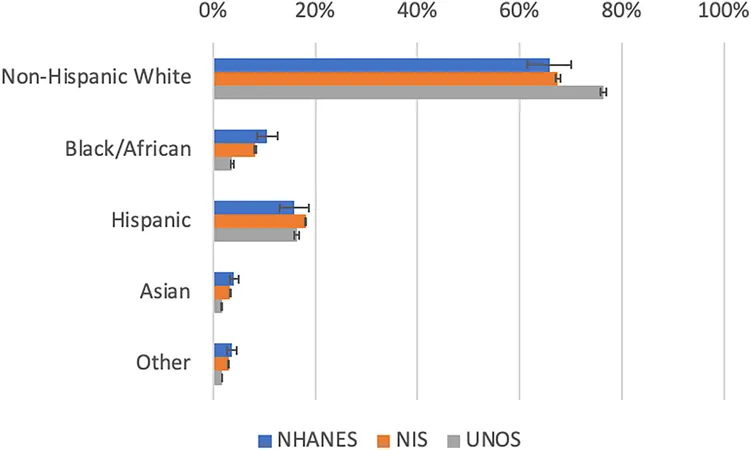
Shocking Racial Disparities Revealed in Alcohol-Associated Liver Disease!
2024-09-29
Researchers have uncovered startling differences in the impact of alcohol-associated liver disease (ALD) across various races and ethnicities in the United States. Although it has been known for some time that ALD outcomes aren't equitable among different groups, the specific variations have remained somewhat murky until now.
In a groundbreaking study led by Dr. Thomas Cotter, an Assistant Professor of Internal Medicine in the Division of Digestive and Liver Diseases at UT Southwestern Medical Center, a team of researchers from the U.S., Spain, and Chile dove deep into three nationally representative databases, covering the years from 2011 to 2018. Their goal? To shed light on the racial and ethnic disparities surrounding ALD.
The results, recently published in the prestigious journal Liver International, reveal some shocking trends: Hispanic and Asian individuals exhibit a higher incidence of ALD at younger ages compared to non-Hispanic white counterparts, despite these groups generally consuming less alcohol overall. This indicates a complex interplay between genetics, metabolism, and cultural factors that could be influencing these troubling statistics.
On the other hand, the study found that Black individuals presented lower rates of ALD and faced a decreased risk of death while hospitalized for the condition. This raises important questions about the protective factors that may contribute to these outcomes.
Additionally, the study highlighted a concerning trend for Hispanic and female Asian individuals, who were identified as having the lowest chances of receiving liver transplants if placed on the waitlist. This gap in transplantation opportunities underscores a critical area that needs addressing in healthcare equality.
Dr. Cotter and his team emphasize the urgent need for future research to unravel the underlying causes of these disparities. Understanding why such significant differences exist could pave the way for more equitable health interventions and policies aimed at reducing the burden of alcohol-associated liver disease across all races.
As we gain a clearer understanding of ALD's disproportionate impact, it's imperative for healthcare providers and policymakers to take action to ensure that everyone, regardless of race or ethnicity, receives the care and support they need. Stay tuned, as this critical issue develops and more revelations emerge!

 Brasil (PT)
Brasil (PT)
 Canada (EN)
Canada (EN)
 Chile (ES)
Chile (ES)
 España (ES)
España (ES)
 France (FR)
France (FR)
 Hong Kong (EN)
Hong Kong (EN)
 Italia (IT)
Italia (IT)
 日本 (JA)
日本 (JA)
 Magyarország (HU)
Magyarország (HU)
 Norge (NO)
Norge (NO)
 Polska (PL)
Polska (PL)
 Schweiz (DE)
Schweiz (DE)
 Singapore (EN)
Singapore (EN)
 Sverige (SV)
Sverige (SV)
 Suomi (FI)
Suomi (FI)
 Türkiye (TR)
Türkiye (TR)